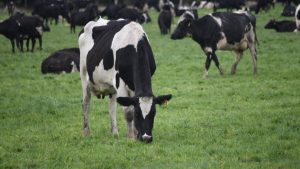
Rick Gladigau has welcomed yesterday’s record opening prices, with some processors breaking through the $9/kg of milk solids ceiling.
However, the ADF president said skyrocketing fodder, fuel, fertiliser and electricity prices were eating into the margins of most primary producers.
“Clearly there is strong competition from processors in the market, which is fantastic for dairy farmers,” Mr Gladigau said.
“Choice is important and we can see that the dairy code is operating as intended.
“ADF recognises that these opening prices are strong, and we believe there is potential for more increases due to limited milk supply to meet existing contracts both domestic and international.”
The Australian Energy Regulator last week announced average wholesale electricity prices had “at least doubled” in the first three months of this year, with wholesale electricity costs in Victoria set to rise 12 per cent for residential customers, and 10 per cent for small businesses.
“Dairy farmers are still under significant pressure given the drastic increases in the cost of feed, fuel, fertiliser and energy. Consequently, the need for movement in retail prices is critical,” Mr Gladigau said.
“While we continue to see some farmers make a business decision to exit the industry for differing reasons we also expect that this uplift in opening prices will help some farmers confidence to continue to invest into their farms.”
EastAUSmilk co-chief executive Eric Danzi this week urged farmers to closely examine the fine print of milk supply agreements, a sentiment Mr Gladigau echoed.
“We encourage farmers to get income estimations from processors to help them decide which is the best option for their farm,” Mr Gladigau said.
“The quoted opening price may not be the price farmers will receive due to many different factors.
“We’ll be working with the new Labor government to deliver on our election platform, much of which seeks to drive profitability and sustainability through the Australian dairy industry, including even more transparency of prices across the dairy supply chain.”
























